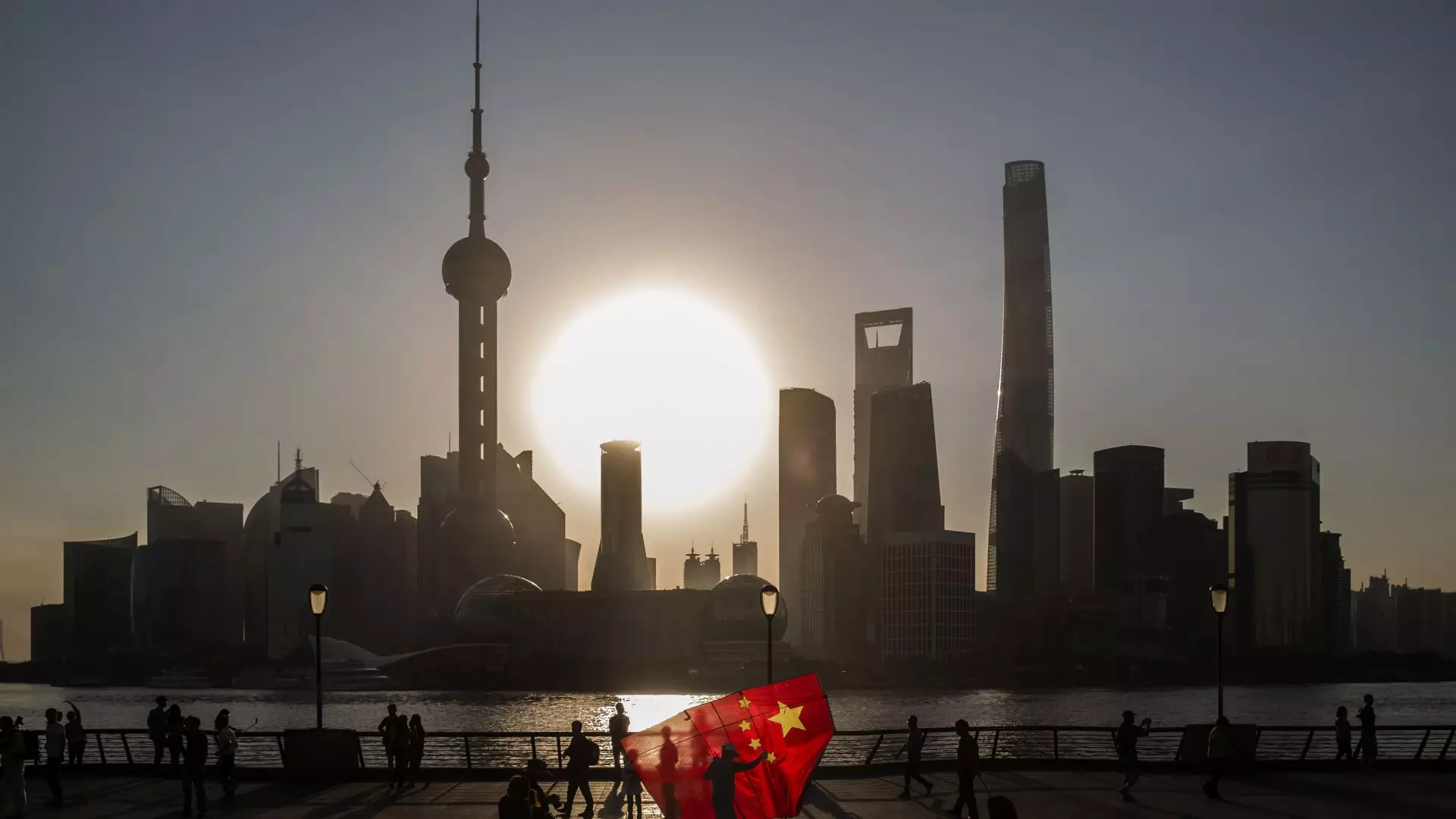The financial landscape of the Asia-Pacific region endured a chastening punch on Friday, as stock markets spiraled downward in response to the United States’ ongoing trade war with China. Investors across the board were left reeling from the volatile economic dances of the previous night, where Wall Street’s mercy seemed a distant mirage. Australia’s S&P/ASX 200 plummeted by 2.28%, while Japan’s Nikkei 225 suffered a staggering 5.46% loss. This disquieting trend was mirrored in South Korea, where the Kospi dipped 1.55%, and even the small-cap Kosdaq was pulled along for the plunge with a minor decline of 0.11%.
Such movements are not mere numbers; they underline a palpable fear weaving through international markets. The Hang Seng index’s futures hovered around 20,601, barely receding from the prior close of 20,681.78, encapsulating the anxiety felt by investors who seek stability in a tempest of uncertainty.
The Tariff Turbulence: Unpacking the Impact
In an abrupt shift, U.S. President Donald Trump announced a postponement—a 90-day breathing room—on proposed reciprocal tariffs that would have added more pressure on global supply chains. Analysts from ANZ were quick to dismiss this temporary lull, asserting that the extended timeline only deepens the uncertainty rather than alleviating it. This sentiment starkly highlights the futility of short-term fixes in a marketplace rife with skepticism over the actual success of trade negotiations.
Moreover, the overall trade war between the U.S. and China is not merely a bilateral dispute; it represents an intricate web of interdependencies embracing more countries than we readily acknowledge. Now setting a staggering cumulative tariff rate of 145% on multiple Chinese goods, the U.S. administration has raised questions about its strategy and the potential long-term implications for economic growth. Does such escalation further sever trade ties, or does it ignite a more hostile rivalry, risking a decades-long conflict?
Investor Sentiment: The Fragile Nature of Hope
The response from investors has been one of reticent optimism intertwined with stark caution. As U.S. stock futures indicated slight upward movement—with S&P 500 futures climbing 0.3%, and Nasdaq 100 futures inching up 0.1%—it masks an underlying anxiety about the direction of the economy. With major indices like the S&P 500 and Nasdaq Composite closing significantly lower, surrendering gains from a recent rally, the latest movements serve as a warning beacon for all economic players.
The staggering downturn of the Dow Jones Industrial Average, shedding over 1,000 points in a single day, underscores that the financial ecosystem is not merely reacting to numbers but is instead influenced by palpable fear among stakeholders. This self-perpetuating cycle—of hope intertwined with fear—calls for a radical re-evaluation of our economic strategies that extend beyond reactive policies.
What looms larger is not just the immediate economic impact of tariffs, but rather what this signifies about our collective priorities and choices. The age-old adage that “what goes up must come down” rings true here. In a world where economic decisions can escalate conflicts, the stakes are higher than ever before, and the ripples of these choices will be felt for generations.


Leave a Reply